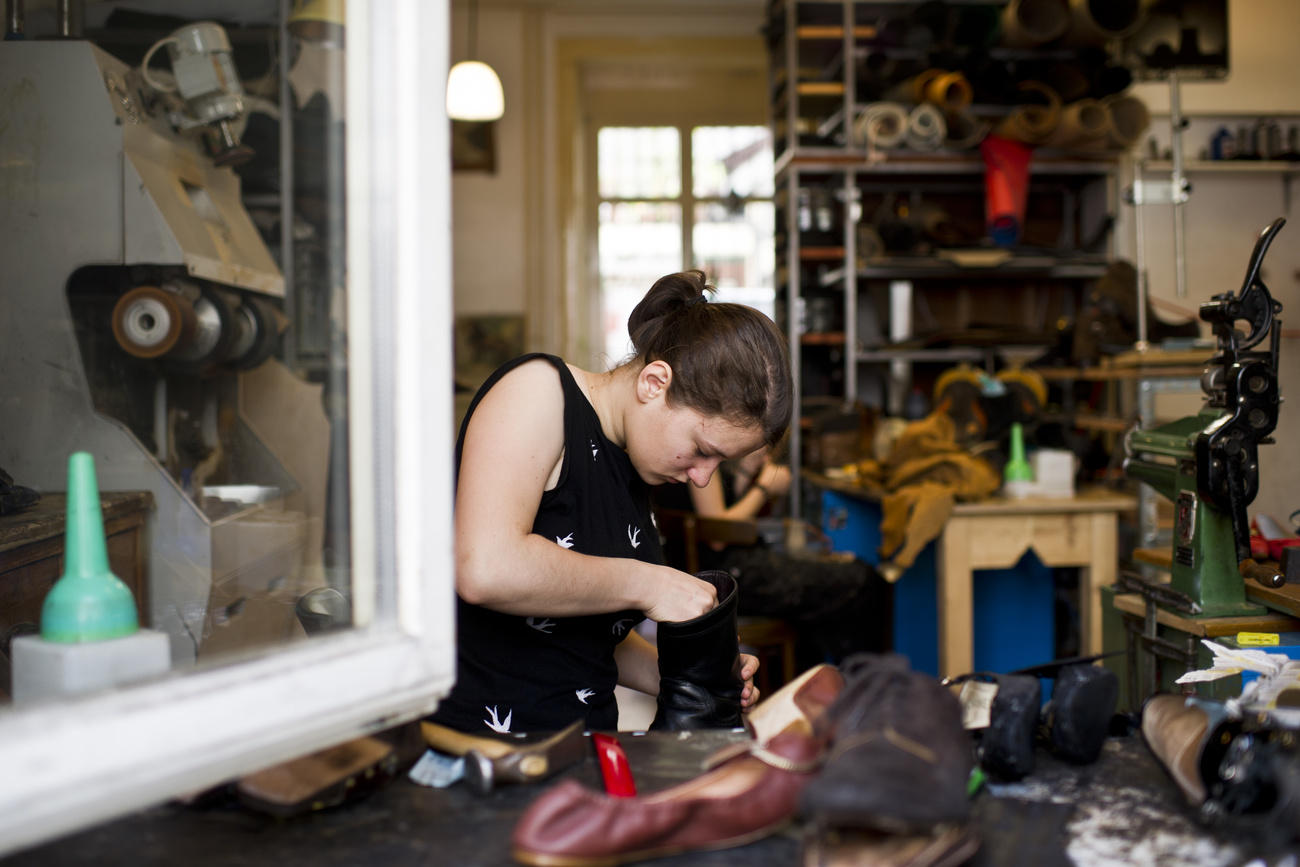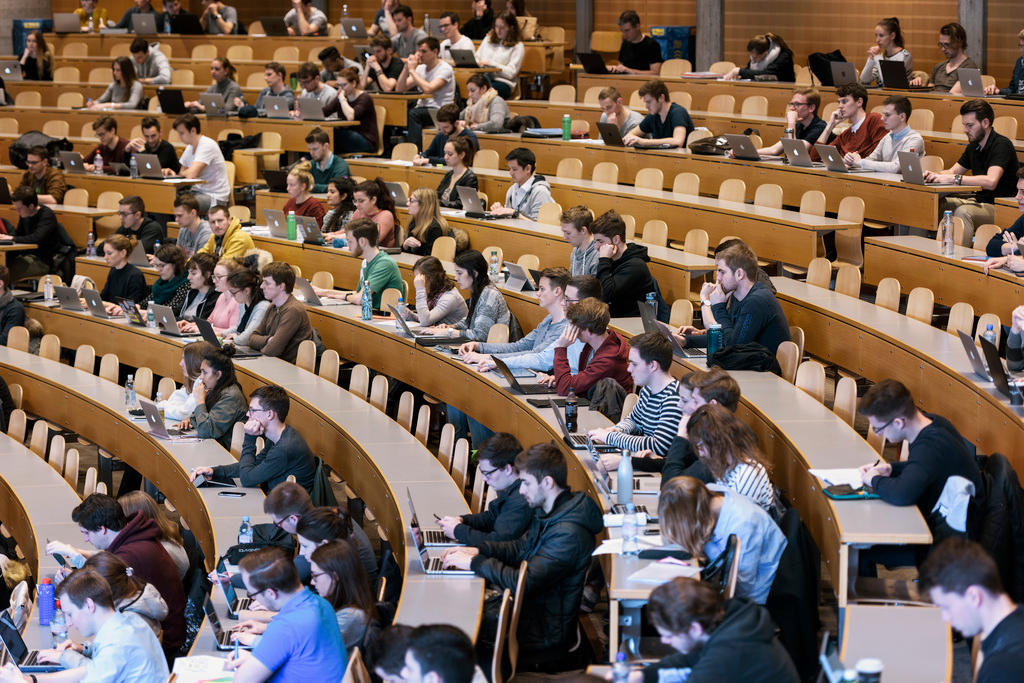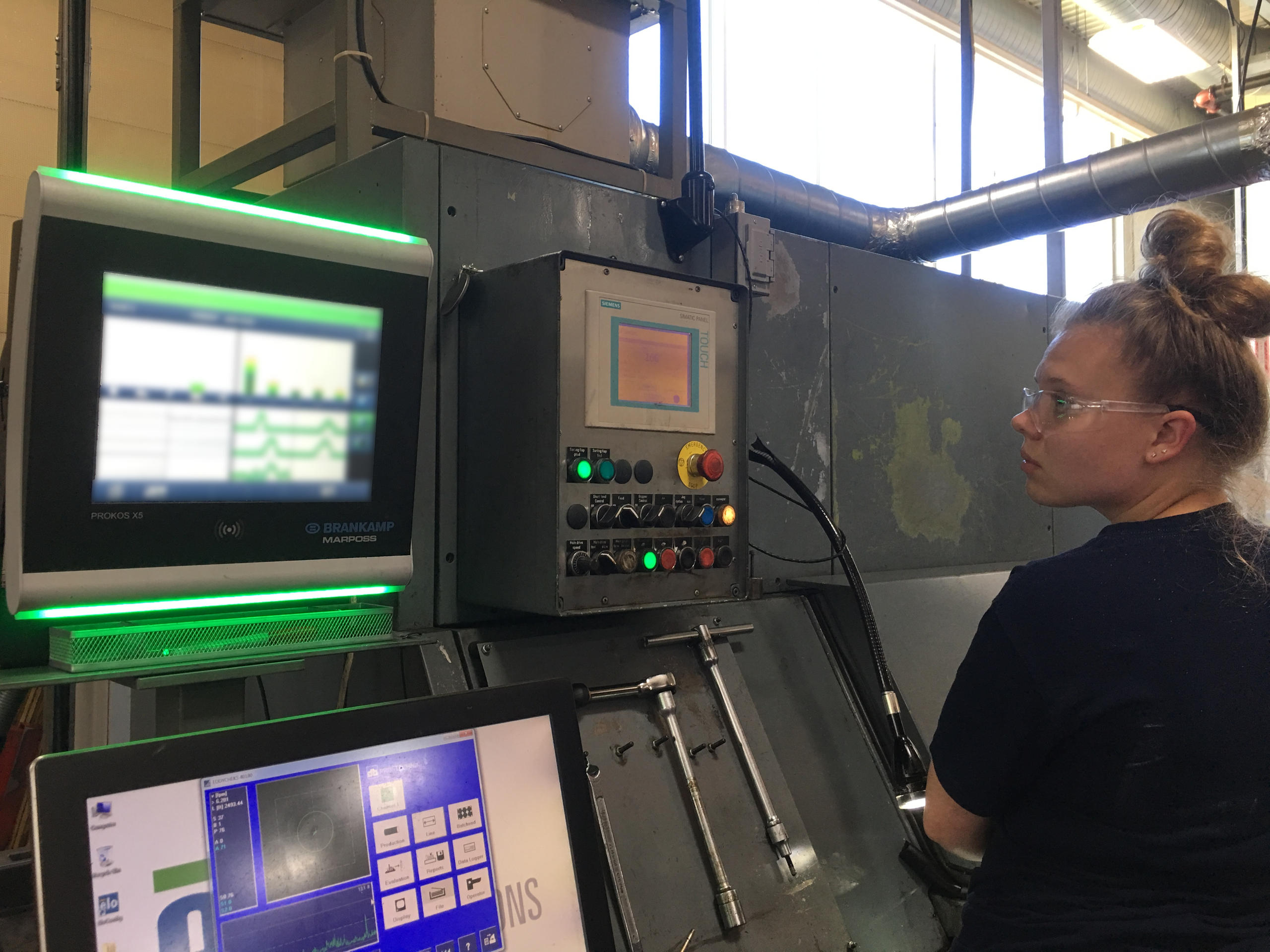Swiss apprenticeships: what’s in and what’s out

Some professions are dying out in Switzerland – you can no longer do an apprenticeship in shoe-repairing, for example. But others are coming in their place: dewatering assistant, anyone?
Around two thirds of Swiss school leavers opt for an apprenticeship, under the country’s dual system of vocational training. This combines learning on the job – and being paid a learning wage – with one to two days of theory at school.
+ Is 14 too early to choose to make a career choice?
+ Swiss vocational training serves as a model for others
There are currently around 230 professions to choose from, and as ever, commercial apprenticeships, essentially office-based, are the most popular among both sexes.
+ Find out what Swiss school leavers chose this year
But there have been big changes in terms of what is on offer over the past 15 years, as the latest evaluation of incoming and outgoing apprenticeships by the State Secretariat for Education, Research and Innovation (SERI)External link, has shown. Here’s a selection.
Jurg SchweriExternal link, professor at the Swiss Federal Institute for Vocational Education and Training SFIVETExternal link, said that economic and societal trends were being reflected in the choice of which trainings to offer.
“Several new apprenticeships reflect technological innovation, for example hearing aid acoustician and sterile processing technologist,” he told swissinfo.ch via e-mail.
“The emergence of the chemical and pharmaceutical assistant is possibly linked to regulatory demands in the pharmaceutical industry,” Schweri added, noting that “other occupations reflect our ageing society, [like] physical activity and health promotion assistant, but also hearing aid acoustician.”
Labour market demands
“Vocational education and training (VET) is linked closely to the needs of the labour market,” SERI told swissinfo.ch in written comments, adding that the professional trade organisations apply for and start vocational training programmes to ensure the attractiveness of their professions. The new job descriptions seem more oriented towards technology because “this is what the modern labour market demands”.
Both SERI and Schweri expect more changes in the types of apprenticeships offered, due to technological change and digital transformation. For this reason, official apprenticeship descriptions are updated every five years, SERI said.
Apprenticeships: qualifications
Most apprenticeships in Switzerland last three to four years and result in a Federal VET diploma. Less demanding, more practical apprenticeships can last two years, resulting in a Federal VET certificate. VET can also be completed in a full-time vocational school (there are more of these in the Italian and French-speaking parts of Switzerland).
A Federal Vocational Baccalaureate, which opens the door to the more practically oriented Universities of Applied Sciences, can be done alongside the Federal VET diploma or afterwards. To get into a regular university, you need to take a university aptitude test.
The VET system is collectively governed by the Confederation, the cantons and professional organisations.
However, although new apprenticeships are a visible and fascinating sign of change, most of the transformation takes place within already existing occupations, Schweri pointed out.
New job profiles
New customer demands can be seen in the hotel communications apprenticeship, a role that was created to combine office and hospitality skills. A specialist in system gastronomy works in fast food as an all-round involved in preparing and serving, but also in food buying and quality control.
And the dewatering assistant works in sewer and drain maintenance, which used to be learned on the job. But as environmental, safety and IT demands have increased, the profession has changed: you now need to use a remote-controlled camera to check the pipes, for example. The name of the apprenticeship was also changed for image reasons, according to branch experts.External link
No longer in demand among apprentices were shoe repair personnel and metal printing. Digitalisation pushed out the photo lab job. In some cases, change can hurt, Schweri said, as was felt by the printing industry, which has been completely transformed by new technologies.
Commercial apprenticeships
And what about the ever-popular commercial apprenticeships?
“The big question is whether digitalisation will cut the demand for commercial employees drastically, or whether employees will simply move on to new tasks, which are part of new business processes,” said Schweri.
Until now, there has been no clear downward trendExternal link in terms of the number of commercial workers employed, as statistics have shown, but there is a trend towards more demanding jobs, he added.
“Many more people earn a tertiary degree (general and vocational) nowadays, which holds for commercial jobs as well as for most other domains and occupational fields.”

More
Half of Swiss to have higher education degrees by 2037

In compliance with the JTI standards
More: SWI swissinfo.ch certified by the Journalism Trust Initiative












You can find an overview of ongoing debates with our journalists here . Please join us!
If you want to start a conversation about a topic raised in this article or want to report factual errors, email us at english@swissinfo.ch.